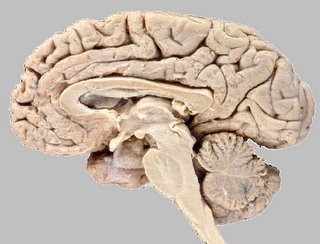Donald Rumsfeld once said as part of a speech:"Reports that say that something hasn't happened are always interesting to me, because as we know, there are known knowns; there are things we know we know. We also know there are known unknowns; that is to say we know there are some things we do not know. But there are also unknown unknowns -- the ones we don't know we don't know. And if one looks throughout the history of our country and other free countries, it is the latter category that tend to be the difficult ones." It came to mind while I was reading the article below. Maybe he wasn't talking gibberish. Then again....
Eh?
 In general we know what we don't know.
In general we know what we don't know.I know that I don't know the weight of a migrating swallow, the maximum temperature yesterday in Prestatyn, or the telephone number of Nicole Kidman.
There are some things that I don't know that I don't know. There are many plants and animals that I am wholly unaware of, and I don't know the color of plant X because I don't know that plant X even exists.
But because I know that I don't know all of the plants and animals on the planet, I am comfortable with the knowledge that I don't know about them. There is a generic lack of knowledge and within that is a whole swathe of specific lack of knowledge. I am aware of the generic lack, and so the specific lacks seem okay.
So far, so good.
But what about the stuff we used to know, but don't know now. Lost knowledge.
We don't know what we no longer know, and have to rely on lost knowledge being exposed.
I was occasioned to look at a statistics paper last week. I used to know and understand statistics - as part of my degree I took a one year statistics course and got a first. But it was like reading greek (a language I know I don't know).
When did I lose that knowledge? Did I lose it as a result of learning something else? Did I lose it in stages or all at once? Have I had a stroke? Do I even exist? Is this a dagger I see before me?
It seems fair to presume that there is a finite limit to knowledge. Learning means forgetting. This should be advertised more.
"This course in beginners' French will take 10 weeks and cost £29 (£29 ($50)), plus you will forget the Superbowl winners from 1970 to 1984."
If only it was that easy though. Instead we can't know what we will soon not know.
"The next chapter of this book will cost you several memories. The publisher cannot be held responsible for any loss suffered."
This is the sort of thing that costs me a night's sleep.
(from flanerie.org)
He's not the only one....
There are some things that I don't know that I don't know. There are many plants and animals that I am wholly unaware of, and I don't know the color of plant X because I don't know that plant X even exists.
But because I know that I don't know all of the plants and animals on the planet, I am comfortable with the knowledge that I don't know about them. There is a generic lack of knowledge and within that is a whole swathe of specific lack of knowledge. I am aware of the generic lack, and so the specific lacks seem okay.
So far, so good.
But what about the stuff we used to know, but don't know now. Lost knowledge.
We don't know what we no longer know, and have to rely on lost knowledge being exposed.
I was occasioned to look at a statistics paper last week. I used to know and understand statistics - as part of my degree I took a one year statistics course and got a first. But it was like reading greek (a language I know I don't know).
When did I lose that knowledge? Did I lose it as a result of learning something else? Did I lose it in stages or all at once? Have I had a stroke? Do I even exist? Is this a dagger I see before me?
It seems fair to presume that there is a finite limit to knowledge. Learning means forgetting. This should be advertised more.
"This course in beginners' French will take 10 weeks and cost £29 (£29 ($50)), plus you will forget the Superbowl winners from 1970 to 1984."
If only it was that easy though. Instead we can't know what we will soon not know.
"The next chapter of this book will cost you several memories. The publisher cannot be held responsible for any loss suffered."
This is the sort of thing that costs me a night's sleep.
(from flanerie.org)
He's not the only one....
No comments:
Post a Comment